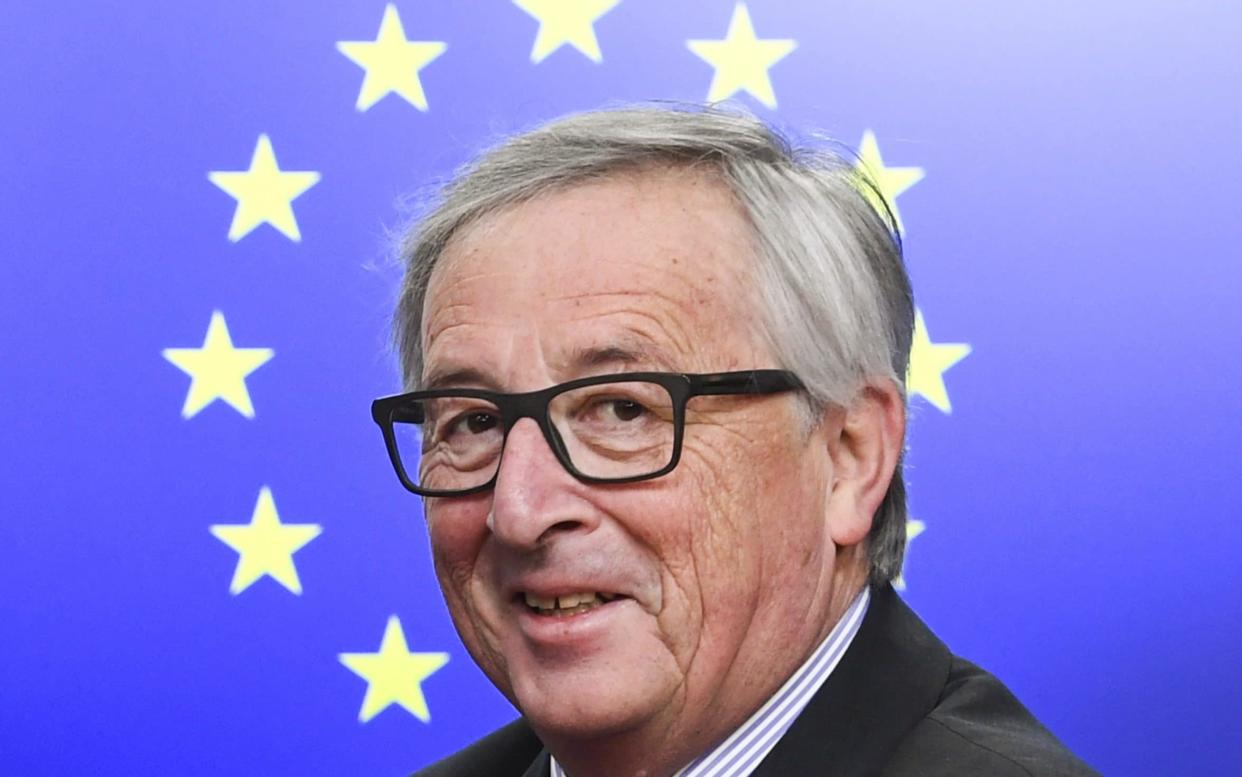Brexit a 'failure' for divided European Union, admits Jean-Claude Juncker ahead of 60th anniversary

Britain’s decision to quit the European Union represents a “failure and a tragedy” for the world largest political and economic bloc, its leader Jean-Claude Juncker has admitted as he prepares to lead the EU’s 60th anniversary celebrations in Rome this weekend.
The run-up to Saturday’s celebrations to mark the anniversary of the signing of the Treaty of Rome in 1957 has been marred by deep divisions among EU members with Poland and Greece both threatening to refuse to sign a formal declaration unless given concessions on pet issues.
And looming over the summit will be Theresa May’s decision to trigger Article 50 next week and begin formal talks to secede from the Union – a reality reflected in the fact that Mrs May will be absent from Saturday’s line-up of leaders.
Asked in a BBC interview if Brexit and the empty chair left by Britain’s non-attendance at the summit would be the elephant in the room, Mr Juncker brushed off the question with a trademark joke: “She’s not an elephant,” he said.
More seriously, Mr Juncker conceded that fundamental internal disagreements among the EU’s remaining 27 member states over how to handle migration, deal with multiculturalism and put the single currency on a sustainable track had left the bloc struggling. "We are not in the best form and shape we could be in,” he said.
The centre-piece of the celebrations will include a formal signing of a new Rome Declaration that proclaims that the EU is “undivided and indivisible” while pledging to make the EU safer, more prosperous and more important on the word stage.
Preparations of the text of the two-page declaration, which has been seen by The Telegraph, has exposed the east-west divisions in the EU, as Poland demanded a softening of language around a multi-speed-Europe.
Poland, which earlier this month tried to unseat Donald Tusk, the European Council president, is at loggerheads with Brussels over climate targets and the threat of censure from the EU for alleged anti-democratic policies of the ruling Law and Justice government.
Beata Szydlo, the Polish prime minister, said on Thursday she might raise objections to the declaration if Poland’s concerns about being marginalised in a two-speed Europe were not addressed.
Greece, meanwhile, was also holding up formal agreement on text while it wrangles with euro zone creditors over its bailout terms, and demands to deepen EU-wide social policies. One EU diplomat even accused Greece of trying to “blackmail” the EU.
Despite the tensions and the need to ensure cohesion in the EU after Brexit, Mr Juncker said that the EU was not “hostile” to Britain and would not seek to punish the UK when the negotiations get under way this year.
“We are not in a hostile mood when it comes to Brexit because I do think, and I do want, and I do wish to have with Britain in the next decades a friendly relationship … we’ll negotiate in a friendly way, in a fair way and we are not naïve,” he said.
“I don’t want others to take the same avenue [as the UK] because let’s suppose for one second that others would leave. Two, three, four, five: that would be the end.”
EU leaders will begin arriving in Rome later today and some will later have an audience with the Pope who will also deliver a speech. Italy's Interior Minister Marco Minniti has ordered increased security the meeting of following the Westminster terror. There are also several protests and rallies expected throughout the day in the Italian capital.

 Yahoo News
Yahoo News 
